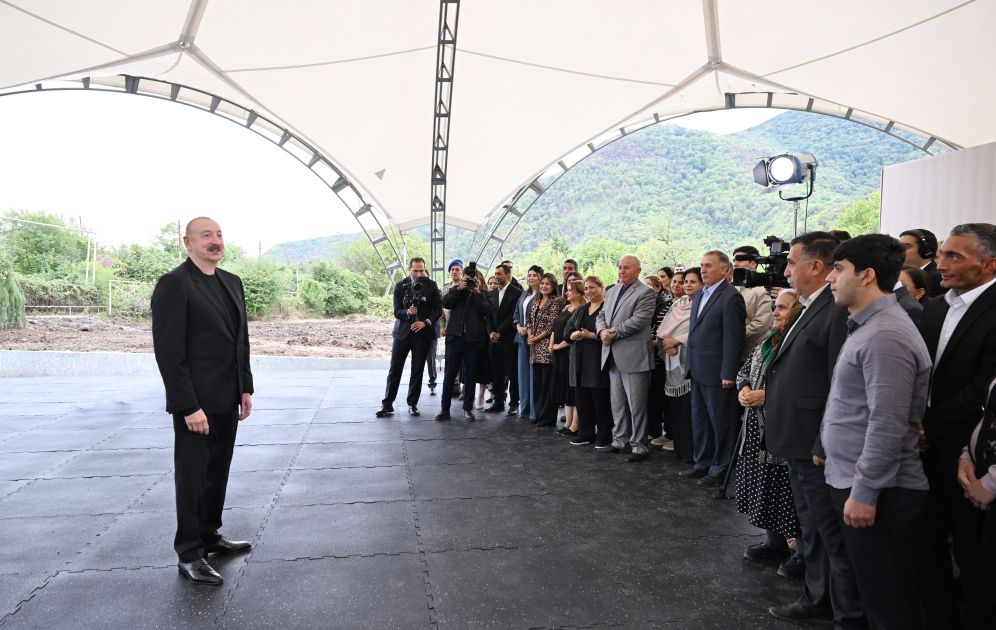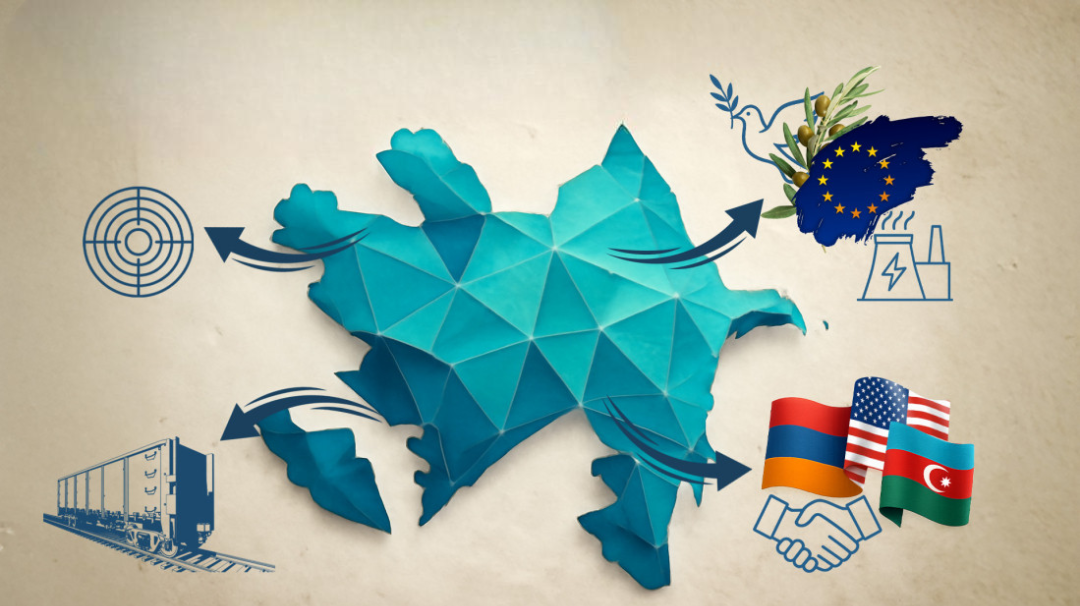From victory to influence, Azerbaijan charts new course in regional diplomacy [ANALYSIS]
![From victory to influence, Azerbaijan charts new course in regional diplomacy [ANALYSIS]](https://www.azernews.az/media/2025/09/16/comic_3.png)
Azerbaijan’s foreign policy, long known for its balance and pragmatism, is undergoing a shift. Empowered by its victory in Garabagh and subsequent restoration of sovereignty, Baku is moving into a more confident and assertive phase. Analysts at Fitch Solutions predict that Azerbaijan will seek to increase its influence across the South Caucasus by leveraging energy diplomacy, trade routes, and its strategic geographical position.
Major shifts are underway in the South Caucasus region, where countries are redefining the basic parameters that have remained relatively stable for the past three decades.
Restoration of Azerbaijan's territorial integrity and sovereignty. For three years following the war, several countries attempted to alter its results. However, since 2023, the process of adaptation has begun.
This shift is not only visible in forecasts, it resonates strongly in the words of President Ilham Aliyev. During his recent visit to the Khojaly district, he emphasised that the sense of justice and permanence brought by Azerbaijan’s victory:
“You [citizens] have returned to your native Garabagh land. I am sure that from now on your lives will be filled only with joy. The suffering and injustice are now in the past… Most importantly, you and your children will live forever in your native Garabagh land. This is a celebration of justice. We have restored justice, but above all, we have restored our rights.”

For decades, Azerbaijan pursued a multi-vector foreign policy—balancing relations with Russia, the EU, Türkiye, and others while carefully avoiding overdependence on any single partner. However, as Fitch notes, the post-war period has emboldened Baku to not just balance but actively shape outcomes in the region, especially over strategic trade and transit routes.
The Azerbaijani leader himself highlighted that Azerbaijan’s determination was underestimated for years:
“For 17 years, I held talks with the leaders of Armenia, trying to convince them that if they did not vacate our lands voluntarily, war would be inevitable. But they did not believe it. They thought that the great powers behind them… would protect them forever. But they miscalculated our resolve.”
The dissolution of the OSCE Minsk Group and the unanimous vote by all OSCE members, including the three co-chairs, indicate that the issue is no longer open for discussion among Moscow, Washington, Paris, Brussels, or Iran. Iran effectively closed the topic after its president visited Garabagh.
Although some groups within these countries may seek to revive the issue, they remain a minority.
The President framed this same theme in terms of justice and statehood:
"We ended the Armenian occupation, put an end to separatism, restored justice, and today we are building and creating here. The anti-terror operation of September 19–20 was a lesson for them and for everyone else. That operation, lasting only a few hours, completely eradicated the separatists, while those in whom they had placed their hopes remained silent. No one could stand against the Azerbaijani Army. No one could stand against the Azerbaijani people. Because we are right."
Now, the timeline for this process is clear. Countries are ready for peace and are taking coordinated steps.
Fitch also emphasised the complex nature of Azerbaijan’s relationship with Russia. While recent incidents, including the accidental downing of an Azerbaijani aircraft and the deaths of Azerbaijani nationals in Russian custody, have strained bilateral ties, a complete rupture is considered unlikely. Fitch analysts noted that Moscow’s muted response to Baku’s retaliatory measures, including diplomatic demarches and restrictions on Russian-linked businesses, indicates a recalibration rather than a breakdown.
“Azerbaijan is likely to continue leveraging its strategic position between East and West to maintain a degree of independence from Russian influence, while still engaging selectively where interests align. This balancing act will be central to Baku’s foreign policy as it navigates a shifting regional order and seeks to consolidate its post-conflict gains,” the forecast concluded.
Russia and Iran are showing measured support for the peace process, but their efforts seem focused on using existing resources to postpone meaningful outcomes. Lavrov’s comments regarding the implementation of the agreements made in Washington are indicative of this stance. Both Moscow and Tehran recognise that moving towards peace between Azerbaijan and Armenia at a time when they are facing resource constraints could negatively impact their own interests.
The reduced likelihood of conflict between Azerbaijan and Armenia diminishes Armenia’s reliance on Russia and Iran for military support. Russia is still determining its approach in this context, attempting to leverage traditional methods of coercion through domestic politics, diaspora connections, and economic relationships. In contrast, Iran appears to have shifted away from pursuing a military alliance with Armenia and is now focusing on establishing a formal strategic partnership with Pashinyan’s government.
In addition to all this, several key developments are taking place in the region. It is essential to recognise how Azerbaijan's energy diplomacy has strengthened its foreign policy. As Europe searches for reliable alternatives to Russian gas, Baku has emerged as a vital partner. By supplying gas and engaging in projects that enhance supply security, Azerbaijan is positioning itself as more than just a supplier; it is becoming a significant player in Europe’s energy security framework. Another important issue is the opening of communication channels, which will inevitably impact the ongoing diplomatic efforts in the region.

Azerbaijan and Armenia are demonstrating their readiness for cooperation. The United States is also preparing to engage directly in this process, while the European Union is willing to provide financial support for the initiative. Special Representative Grono has already visited Baku and Nakhchivan in Azerbaijan, as well as Armenia.
What we are witnessing in Azerbaijan is the dawn of a new regional posture. There are certainly gaps in our understanding. Currently, we have only conceptualised how the project will be implemented and its potential. The countries in the region will continuously seek to intervene in the process to serve their own interests. We can expect setbacks and obstacles during this time. However, the process is moving forward. It cannot be stalled, especially as Azerbaijan’s credibility in the region grows stronger over time, along with the prospects for mutual cooperation. Anyone who attempts to hinder the process will ultimately be the losing side.
Here we are to serve you with news right now. It does not cost much, but worth your attention.
Choose to support open, independent, quality journalism and subscribe on a monthly basis.
By subscribing to our online newspaper, you can have full digital access to all news, analysis, and much more.
You can also follow AzerNEWS on Twitter @AzerNewsAz or Facebook @AzerNewsNewspaper
Thank you!

